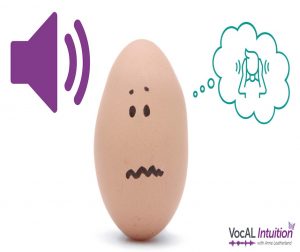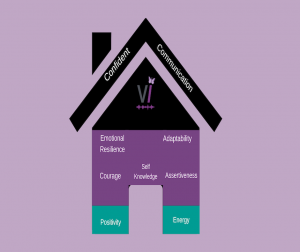
Exams are part of life…
This certainly seems to be the case doesn’t it? Have you noticed that we have all become used to being tested at every stage of our lives? There are tests and exams for almost everything, including vocal arts. When you reach a certain level of competence, you get a certificate. This is important in many cases as it shows that you are “up to the job”, especially in professional situations.
What about exams for your singing or speaking students though? Should there be less emphasis on testing when there is already so much in the educational system, or do vocal exams have their place? Let’s weigh up some pros and cons:
Pros

- Challenge: Working for a vocal exam in singing, drama or speaking can help your students to stay motivated. The challenge gives them something to aim for and provides a good basis for a term (or two) of work.
- Achievement: It is a great achievement when you pass a grade or diploma exam. Your students have to meet definite standards in a number of areas to get these awards.
- Objective Opinion: This is a great chance for students to get feedback from someone who has not heard them before. Examiners are trained to be objective and mark to definite criteria. The best ones will also add encouraging remarks.
- Graded Exam Levels: There can be a learning progression as your student moves from grade to grade. The upper grades often carry UCAS points, which is great for those hoping to get to University.
- Graded Repertoire: This is extremely useful, especially when the exam board gives lots of suggestions. Choosing repertoire for students can sometimes be a minefield and the list is a good place to start when looking for a piece at the right level. In the case of singing, having to choose songs from different lists can help your students to explore new styles that they otherwise may not have tried.
- Performance: Exams provide a great opportunity for your students to learn how to prepare for and give a performance. You can build a disciplined routine. There is no large audience, which for some can be very helpful, especially at the early stages.
- Tests: Some exams have set tests e.g. sight reading, a quick study piece or improvisation. Singing exams usually have listening tests as well. These are there to test skills which you would probably like your students to develop in any case. The exam can give them more motivation to work at them!
Cons

- Challenge: Some students don’t respond well to exam pressure. Sometimes it is better to realise that these students need different challenges. They want to learn for the joy of it. You can give challenges based on what they love. I would recommend doing this anyway, and having at least a term a year without an exam, for all students.
- Achievement: There is more than one way to achieve! There is a danger of falling into exam-driven teaching. Focus on other things and look for where the individual achievement may lie. Make your own internal reward system.
- Objective Opinion: Just now and again a student gets a comment from an examiner that doesn’t seem fair or perhaps even ill advised. Happily this is rare these days. When it does happen don’t hesitate to chat to the board about it.
- Graded Exams: Beware the serial certificate (or ‘distinction”) collector, or those who want to push on too soon just to get a higher grade. This is a real drawback. Students (and parents) need to know that exams are not the “be all and end all”. Too much exam focus can sap the joy and stop wider exploration.
- Graded Repertoire: I have seen some syllabuses where I think “why on earth is that on this grade?”. I would advise being careful with your selections as they really must suit your student, their age, understanding and their emotional development.
- Peformance: The exam situation can cause otherwise happy performers to freeze! Whilst some like just seeing one person, for others this is a nightmare.
- Tests: I have had very good students who refused to do exams simply because they found the tests traumatic. Even when they could do them, it caused worry. I’m delighted that some boards recognise this and now offer recital or leisure play grades.
So, what becomes obvious to me is that a lot of the pros can also be cons! As with so much of our work as teachers, it really depends on your student and the context.
The main thing I believe, is to do the following:
- Set smart goals and provide varied challenges for your students .
- Create opportunities for your students to achieve in a number of different ways, including exams. Reward achievements, however small, especially with younger ones.
- Encourage your student to have a go, but never force them into an exam.
- Provide varied performing opportunities, from yearly concerts to small recitals and even get togethers with two or three students and their parents. Let them perform for each other and give each other positive feedback.
- Feedback to them regularly about what is working well and what needs more work. Make it positive and constructive.
- Select the exam and exam board carefully. Read the syllabuses and look at what is out there. Match the vocal exam to the student; e.g. Is there an element of choice or do you want to work from a list? Is there a recital option?
I’m sure there will be other things you can think of here. Please do leave a comment on the Blog page if you’d like to add your ideas. This is an ongoing discussion!
You can catch a recording of the live session I did on this topic on the VocAL Intuition Facebook Page .
Feel free to get in touch if you’d like to ask questions or discuss how I might be able to help you in your work. I’d love to chat!
Anne




